Life and death at a front-line Iraqi army field clinic
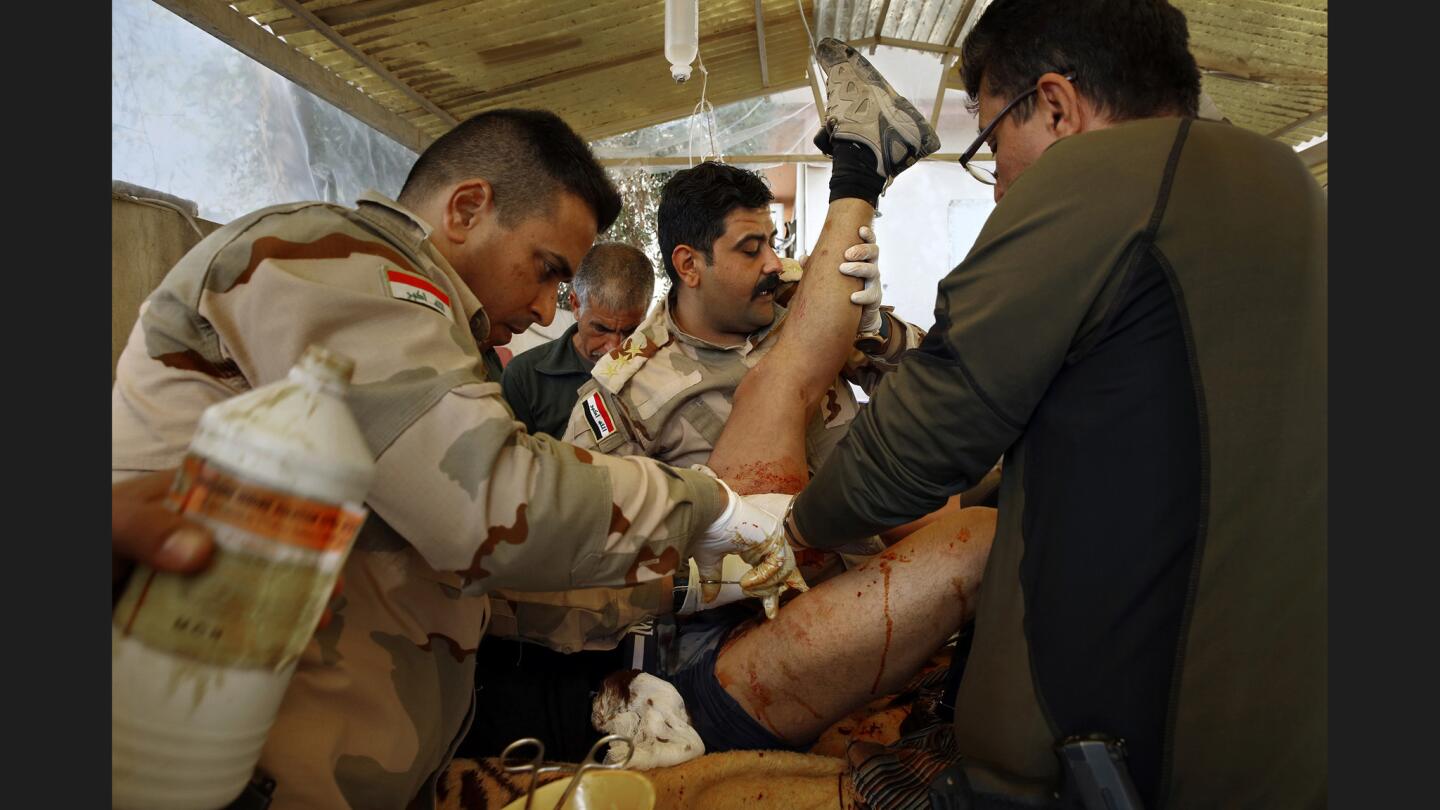
At the Iraqi army’s 9th Armored Division medical clinic, doctors Major Mohammed Hassan Abdullah, from left, Captain Osama Fuad Rauf and Maj. Gen. Raad Mohssan Dakhel work together on a soldier who was shot by an Islamic State sniper.
(Carolyn Cole / Los Angeles Times)Doctors had been bracing for an influx of collateral damage ever since Iraqi troops entered Mosul, part of a nearly month-old campaign to take back Iraq’s second largest city from Islamic State. On two recent days, 63 patients arrived, along with five dead soldiers. The carnage tried the clinic’s five staff members and even the veteran doctors. And for the three doctors, there was a growing awareness that the enemy could be coming in the door on a field stretcher.
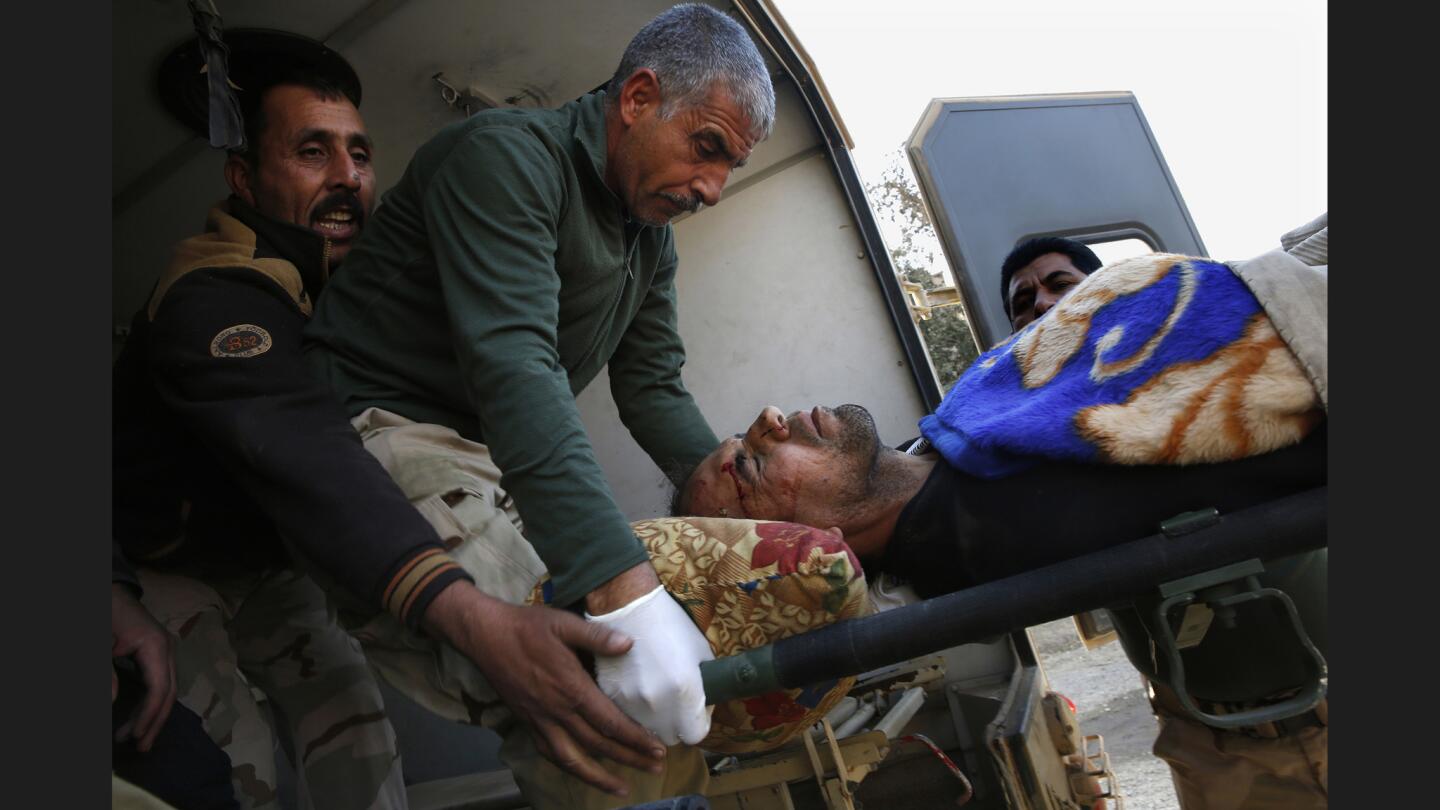
Medic Taher Habeter, 47, unloads an injured soldier at the Iraqi army’s 9th Armored Division medical clinic.
(Carolyn Cole / Los Angeles Times)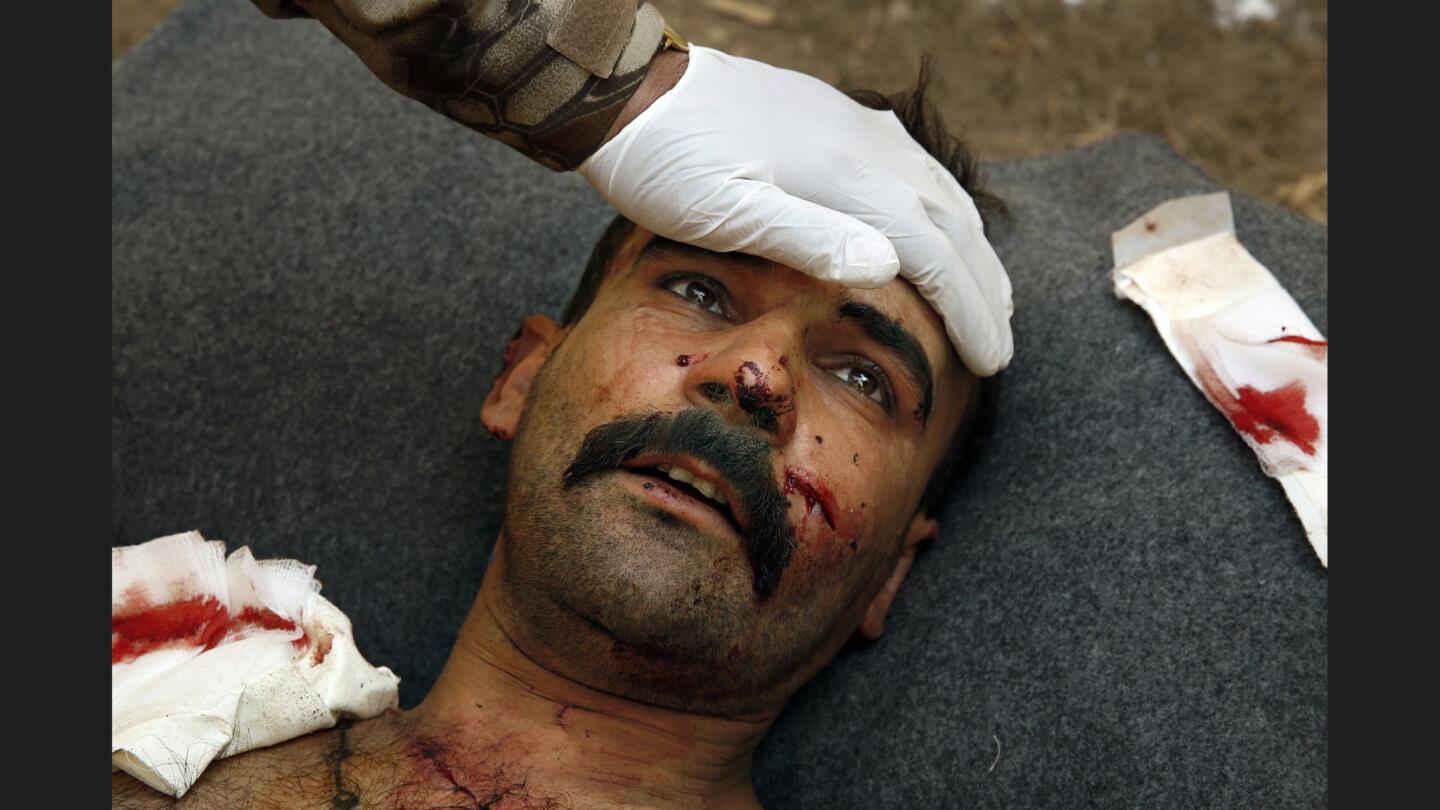
Maj. Gen. Raad Mohssan Dakhel comforts a soldier injured by a suicide bomb explosion.
(Carolyn Cole / Los Angeles Times)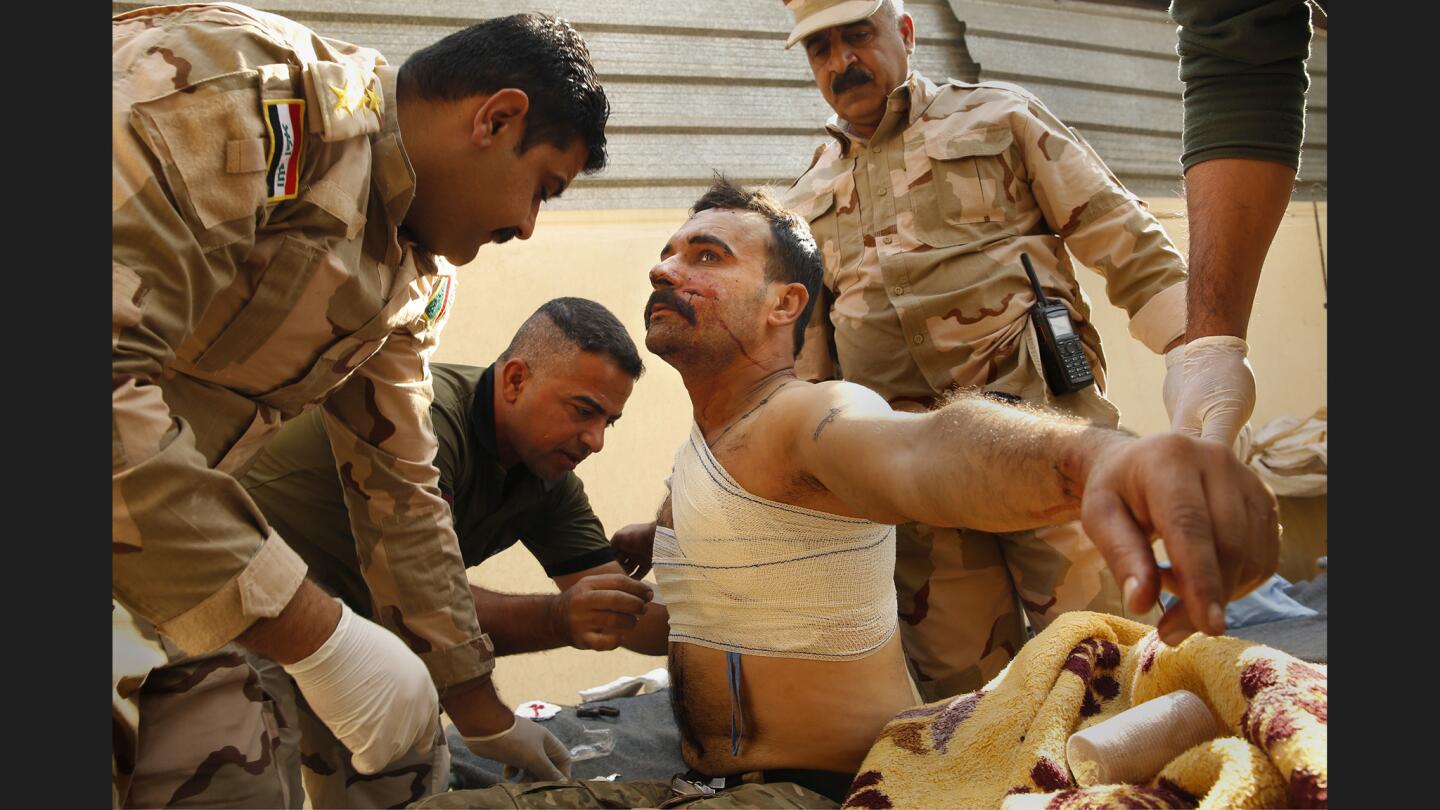
Capt. Osama Fuad Rauf oversees the bandaging of a soldier who was injured in a suicide car bombing.
(Carolyn Cole / Los Angeles Times)Advertisement
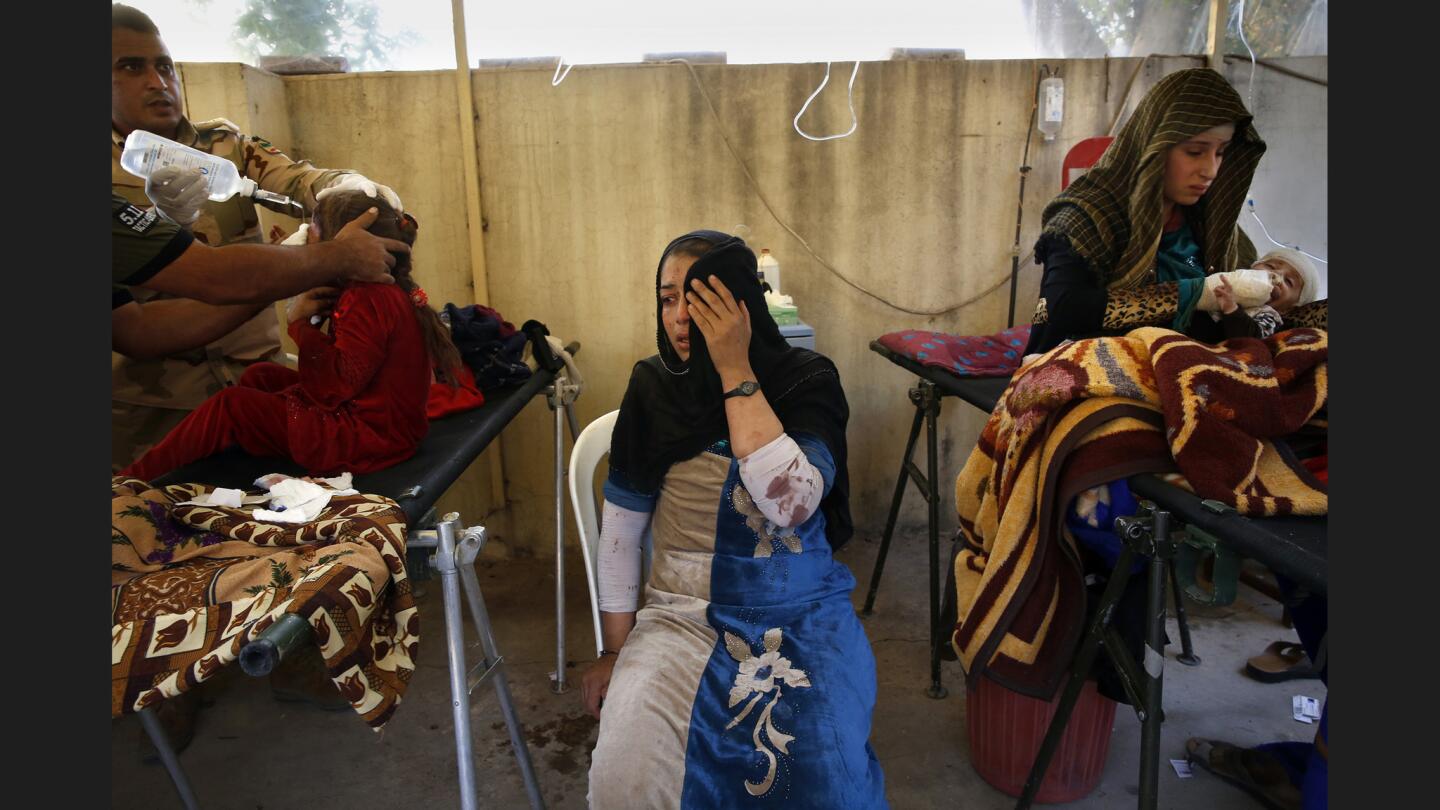
A group of Mosul civilians who were injured when a car bomb exploded near their house,are treated at the Iraqi Army’s 9th Armored Division medical clinic. Doha Abdel Setar, 17, right, holds her 5-month-old son Marwan, whose head was grazed by shrapnel. “If you guys didn’t show up, this never would have happened,” she told Fuad.
(Carolyn Cole / Los Angeles Times)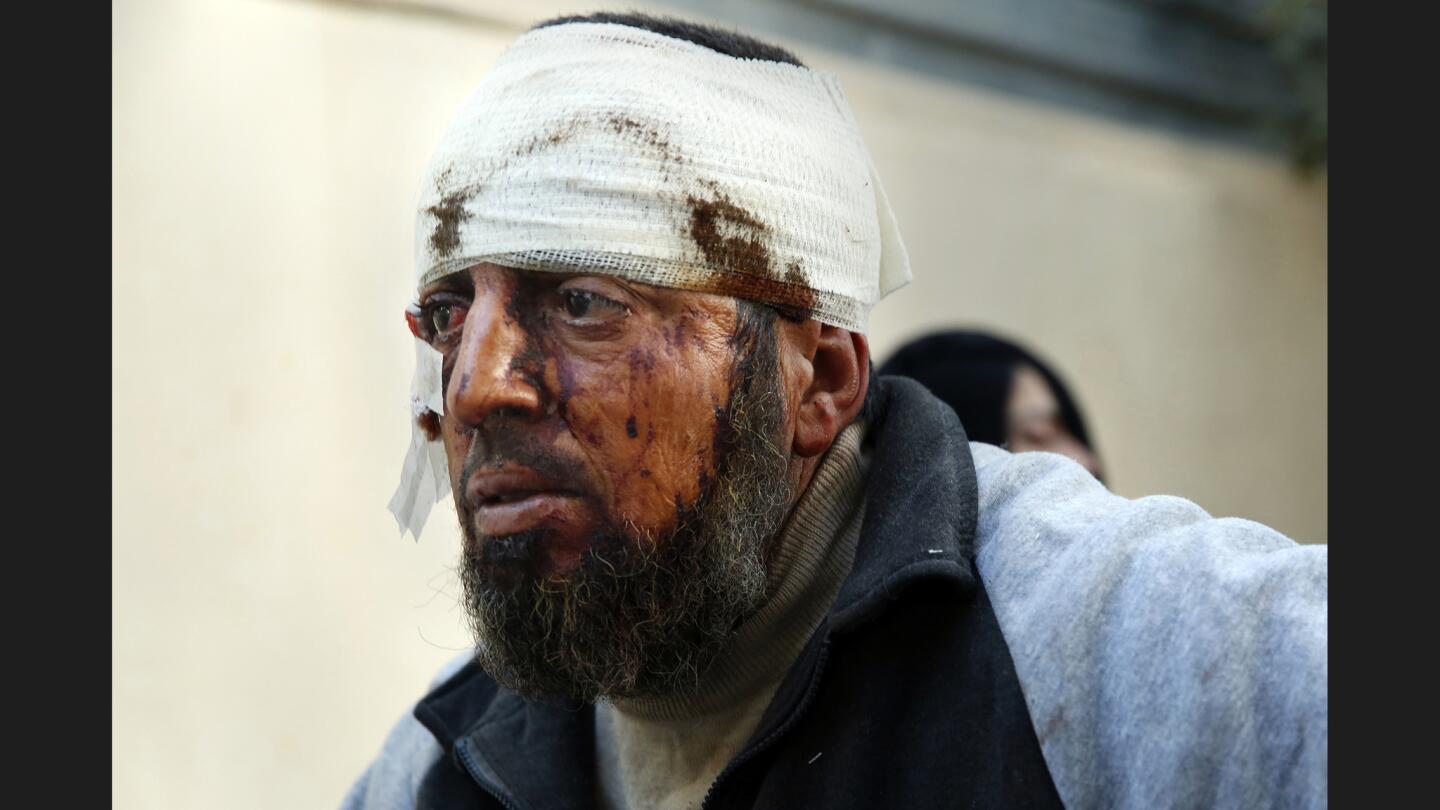
Mahmoud Hussein arrived at the field hospital after a suicide truck bombing hit his home. His name was on an Islamic State suspect list, so he was taken into custody later in the night.
(Carolyn Cole / Los Angeles Times)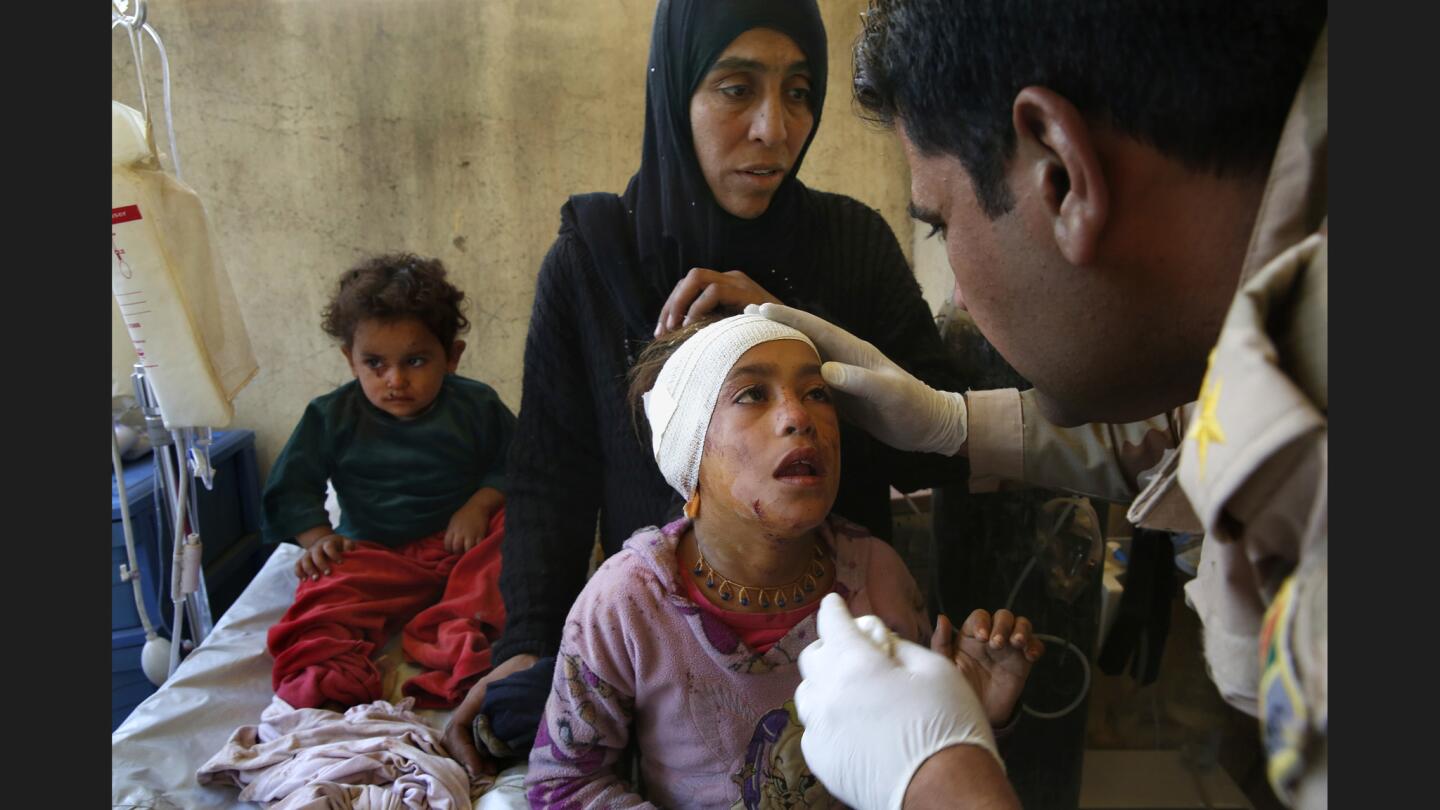
Captain Osama Fuad Rauf treats a group of civilians brought to the field clinic after their house was destroyed by a suicide truck bombing.
(Carolyn Cole / Los Angeles Times)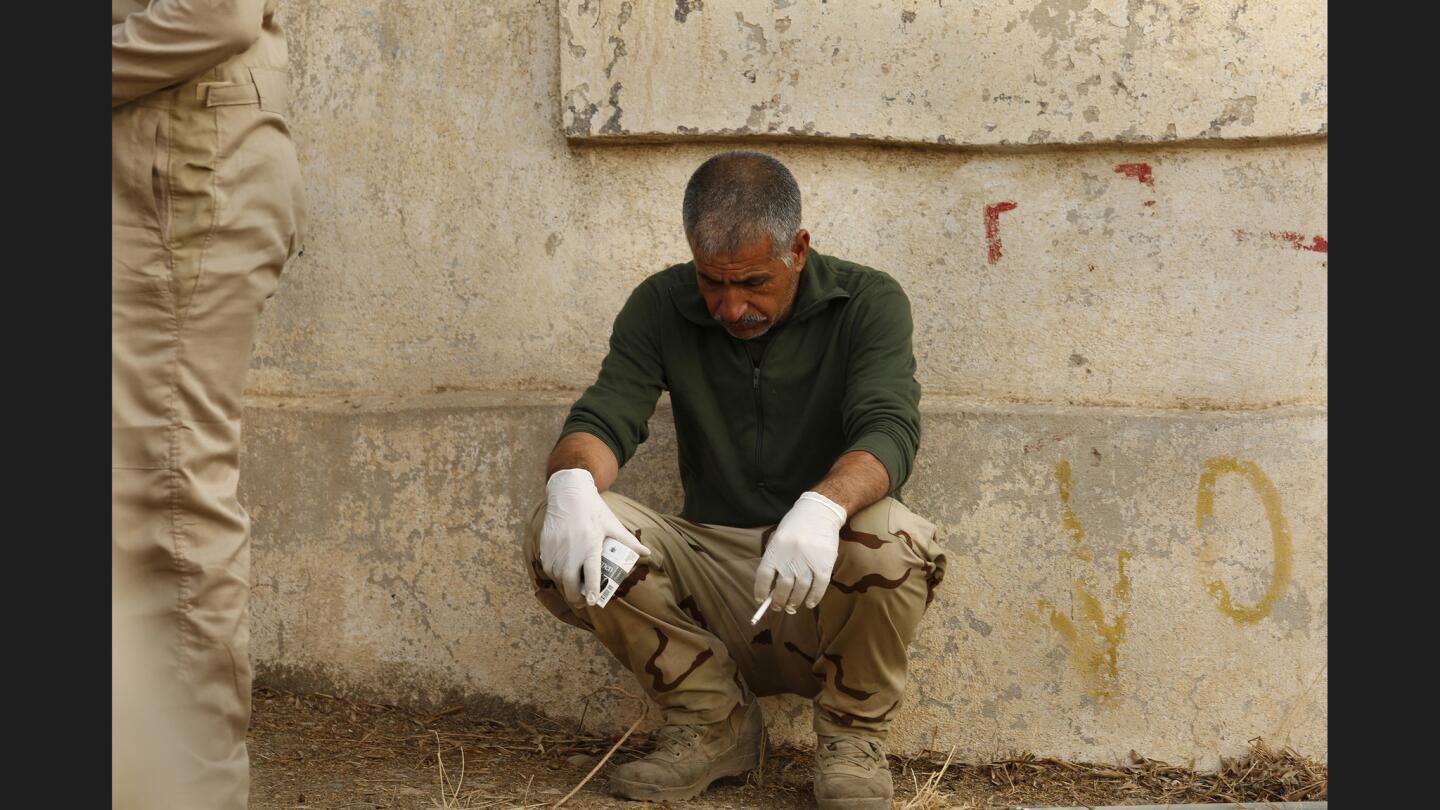
Medic Taher Habeter takes a break at a field clinic where he and many other men have been working for weeks treating the wounded.
(Carolyn Cole / Los Angeles Times)Advertisement
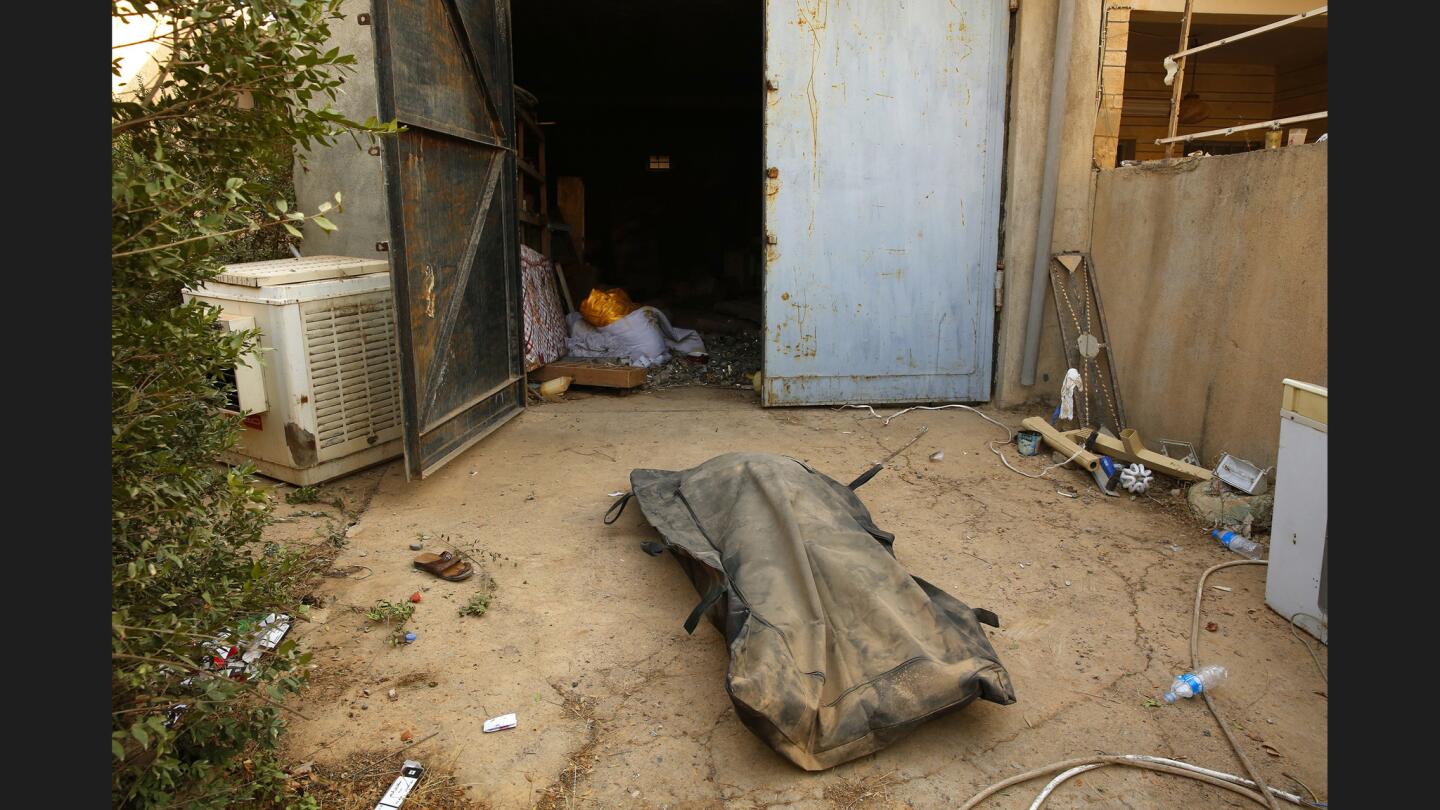
The body of a soldier waits to be moved into a refrigerated truck, which serves as a field morgue.
(Carolyn Cole / Los Angeles Times)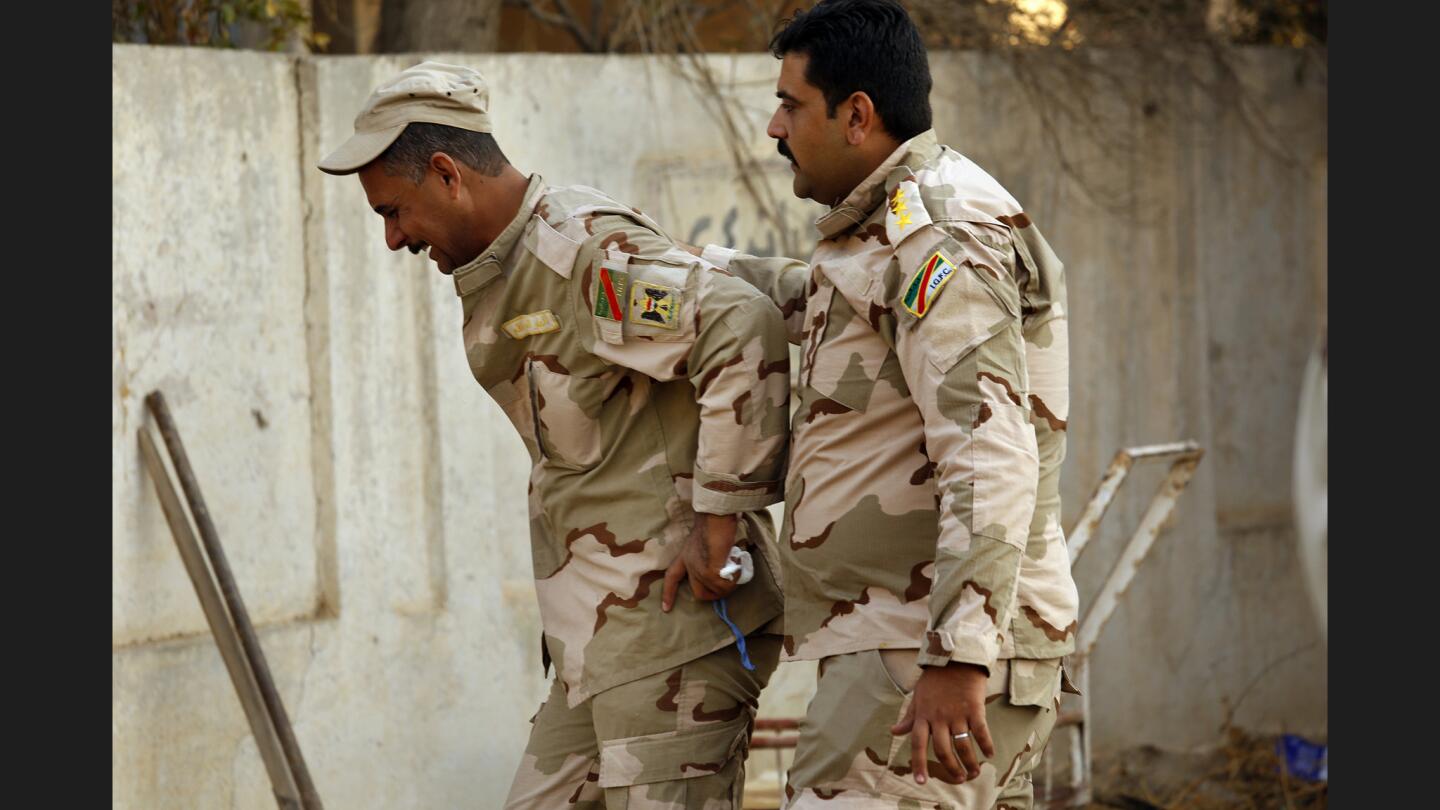
“Why didn’t you do anything for him?” the soldier wailed to his cousin Salam Jabar Fayad (not shown) as Capt. Osama Fuad Rauf consoles him. The soldier’s other cousin, Hasan Qatah Duigr, 39, of Baghdad, had died instantly in a mortar attack while trying to aid civilians in Intisar, a neighborhood near Mosul.
(Carolyn Cole / Los Angeles Times)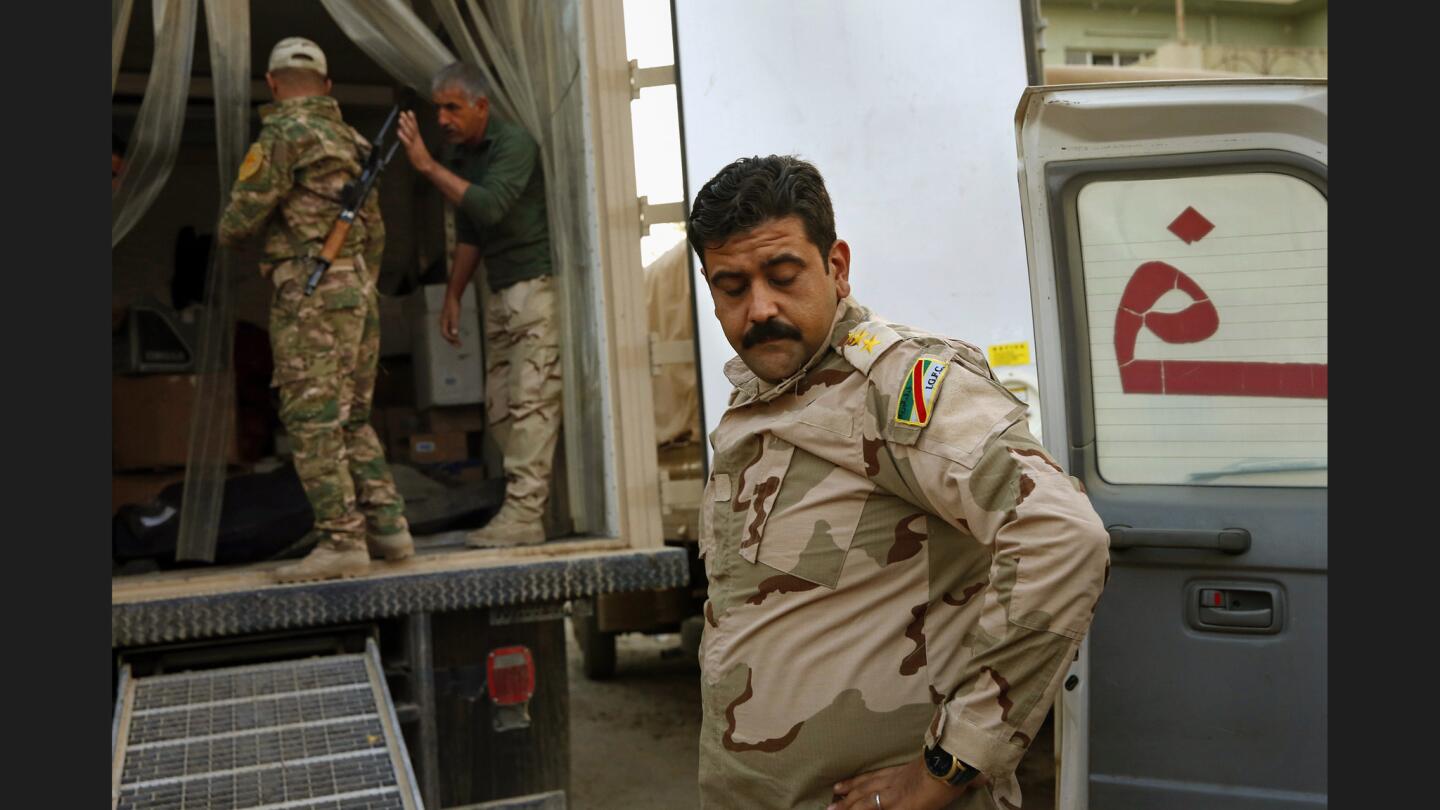
Capt. Osama Fuad Rauf, next to a refrigerated truck that serves as morgue, says each time a soldier dies, it takes away a bit of his soul.
(Carolyn Cole / Los Angeles Times)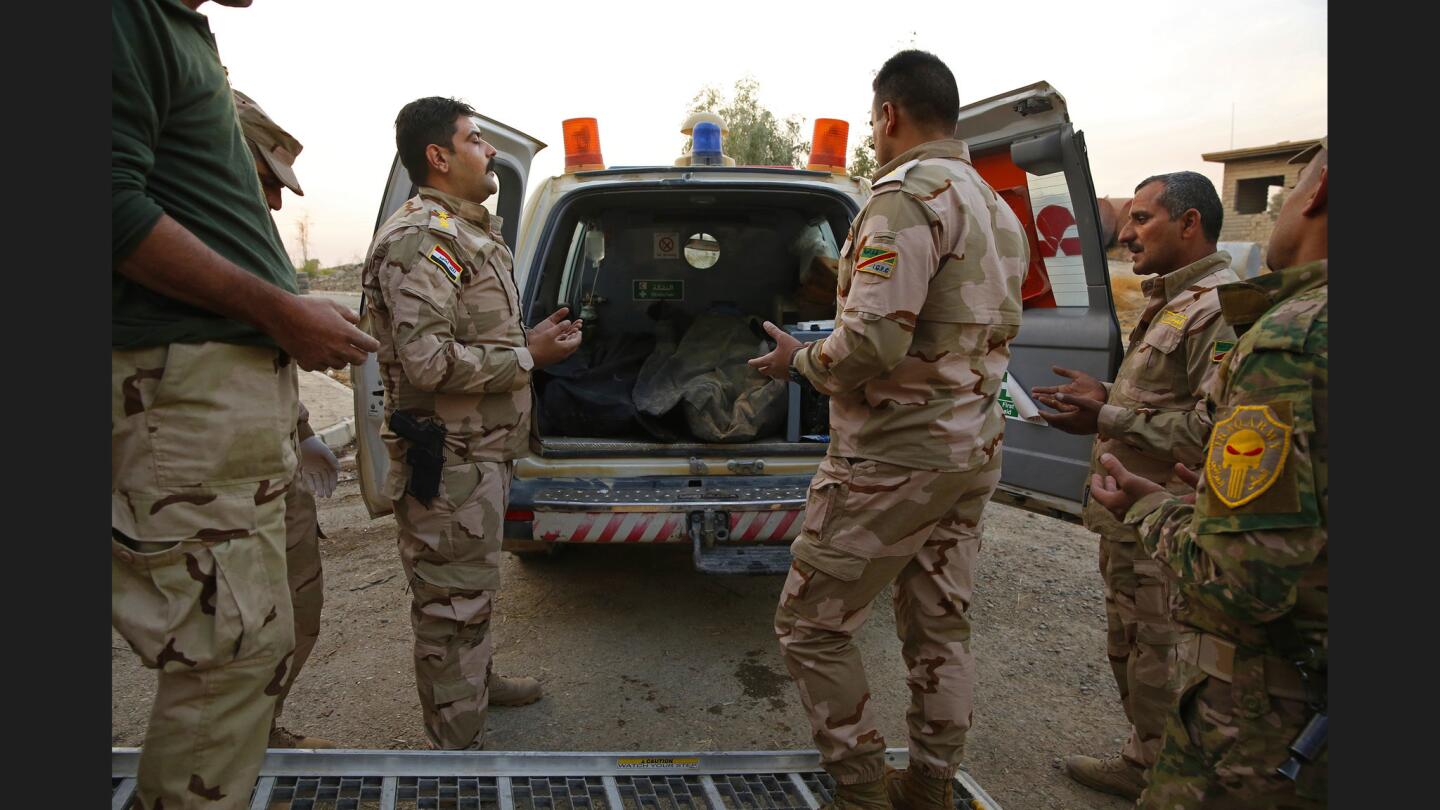
Capt. Osama Fuad Rauf and other medical personnel say a prayer as the bodies of two soldiers are prepared for transport. Fuad recited the Fatiha, the opening verses of the Koran: “Guide us, oh Lord, on the straight path, the path of those upon whom you have bestowed your bounties, not of those inflicted with your wrath, nor of those gone astray.”
(Carolyn Cole / Los Angeles Times)Advertisement
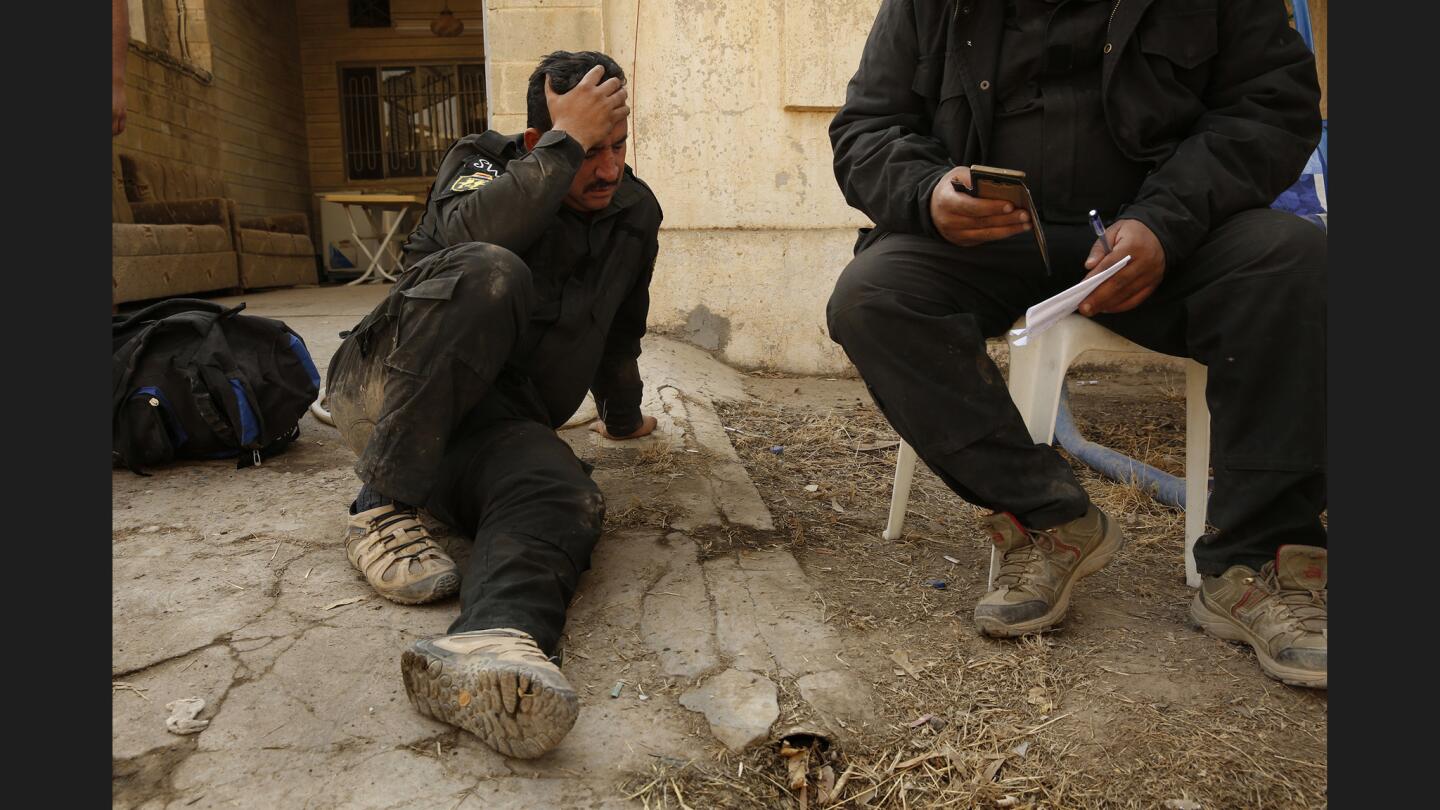
Jawad Mustafa, 35, had already lost a brother two years ago during the Ramadi offensive; now he’s lost another brother in the Mosul offensive.
(Carolyn Cole / Los Angeles Times)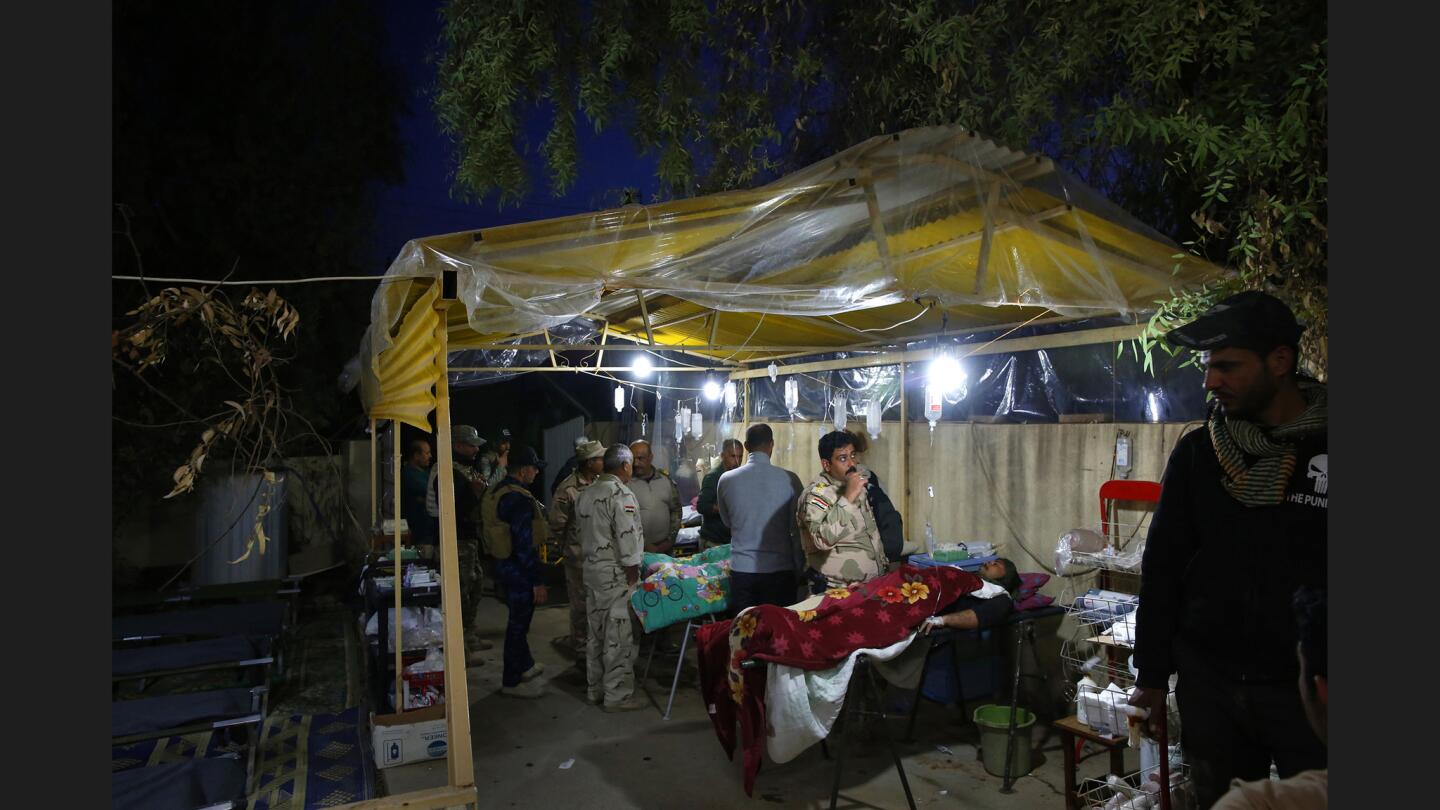
Captain Osama Fuad Rauf checks the status of a patient a the Iraqi Army’s 9th Armored Division medical clinic, set up in a home Karemlis, Iraq.
(Carolyn Cole / Los Angeles Times)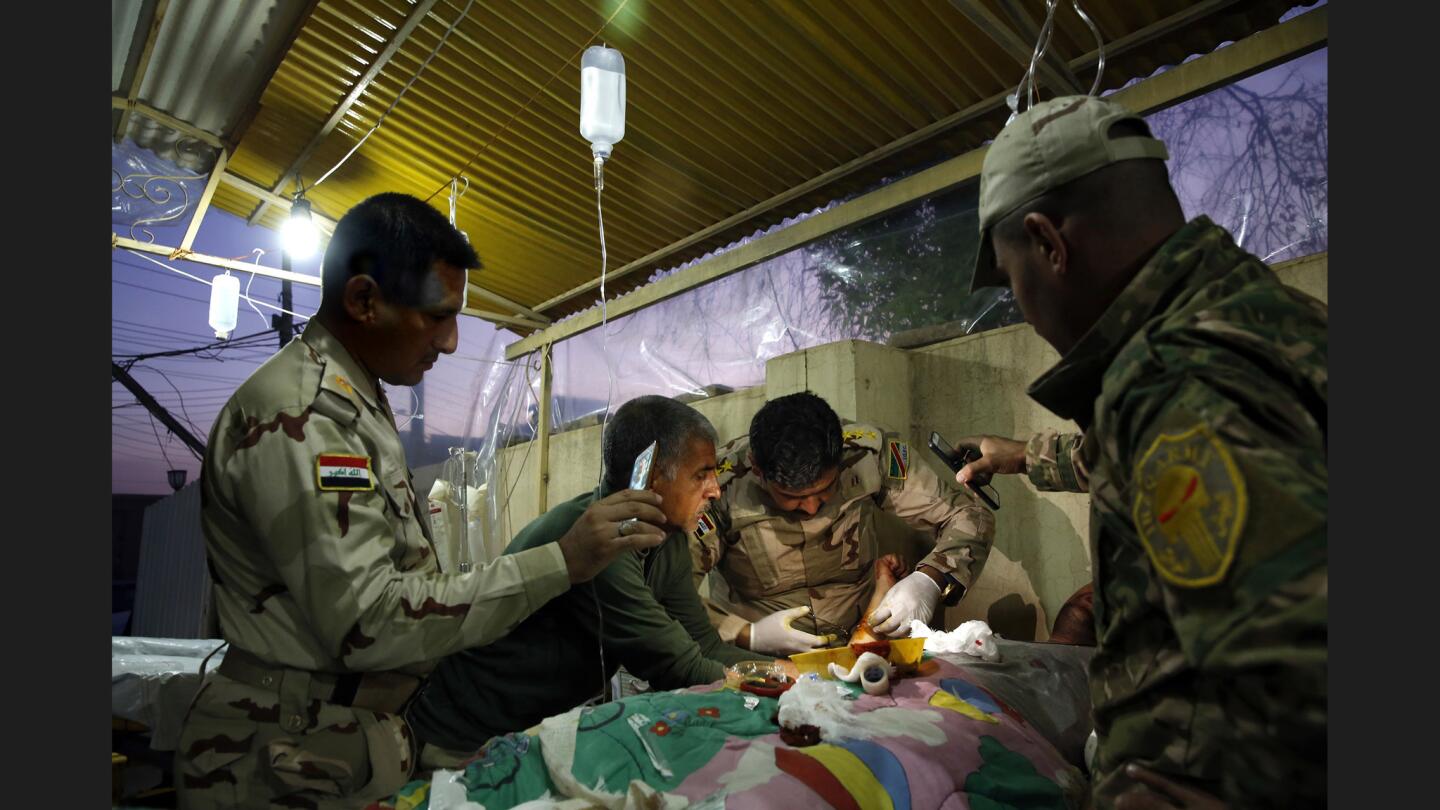
Capt. Osama Fuad Rauf works on a patient as another holds a cellphone above for additional light at the Iraqi Army’s 9th Armored Division medical clinic.
(Carolyn Cole / Los Angeles Times)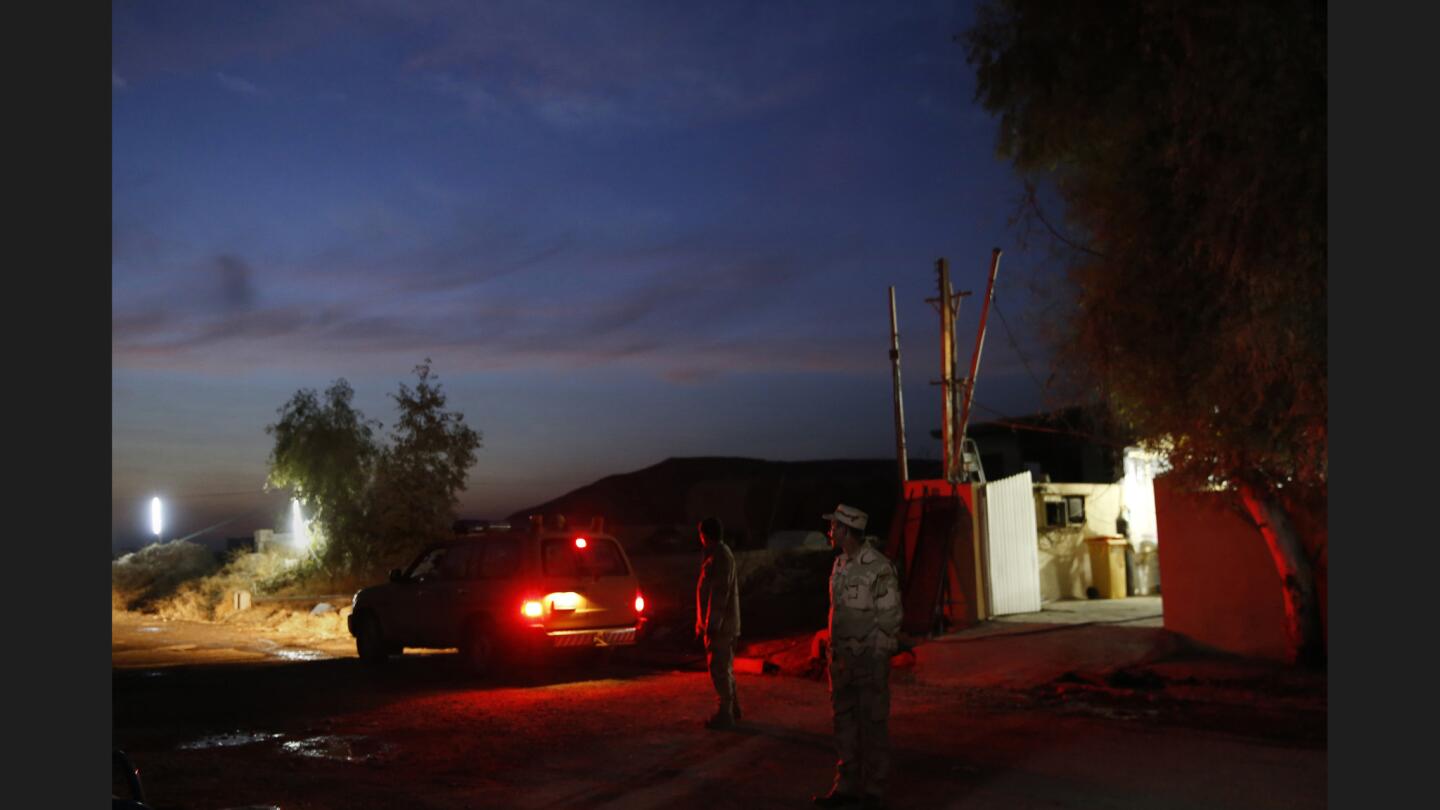
The Iraqi army’s 9th Armored Division medical clinic is in a home formerly used by Islamic State fighters after the owners fled. An ambulance leaves for Irbil with more wounded.
(Carolyn Cole / Los Angeles Times)Advertisement
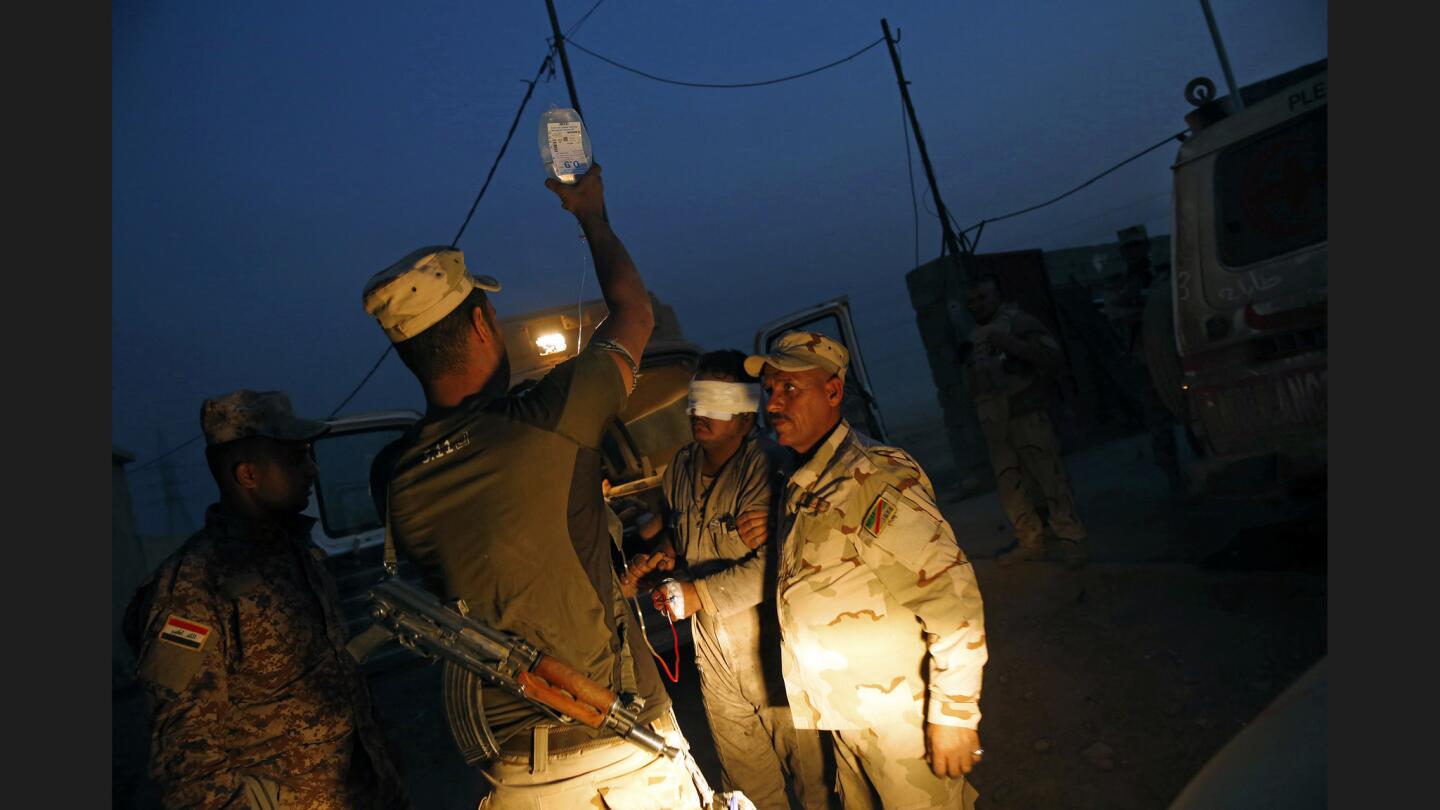
A frontline first aid station in Scheherazade, Iraq, where several injured soldiers are being evacuated.
(Carolyn Cole / Los Angeles Times)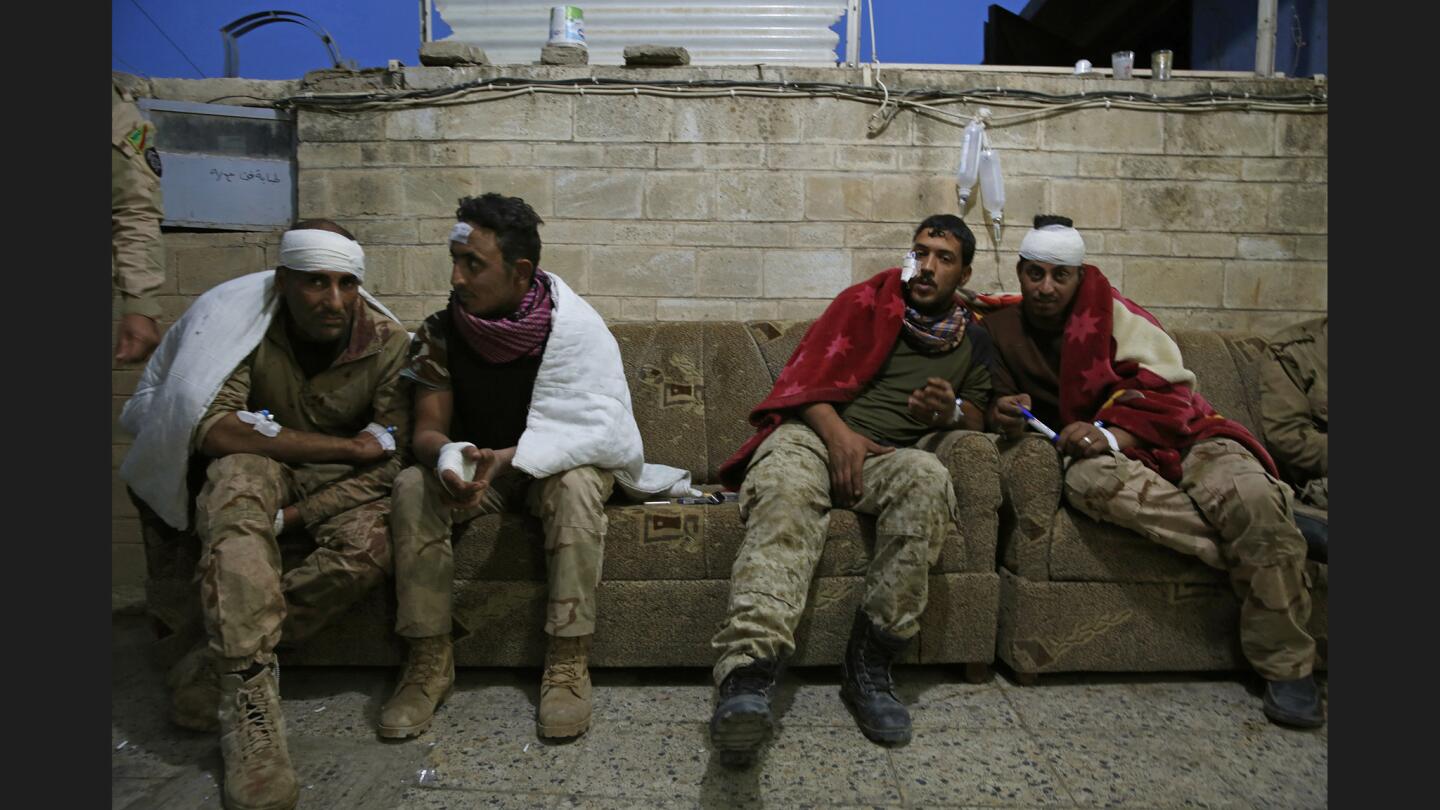
“Daesh uses families as human shields,” said Ali Mohamed, 25, second from right with bandaged cheek. “They were hiding behind them and shooting us.”
(Carolyn Cole / Los Angeles Times)


